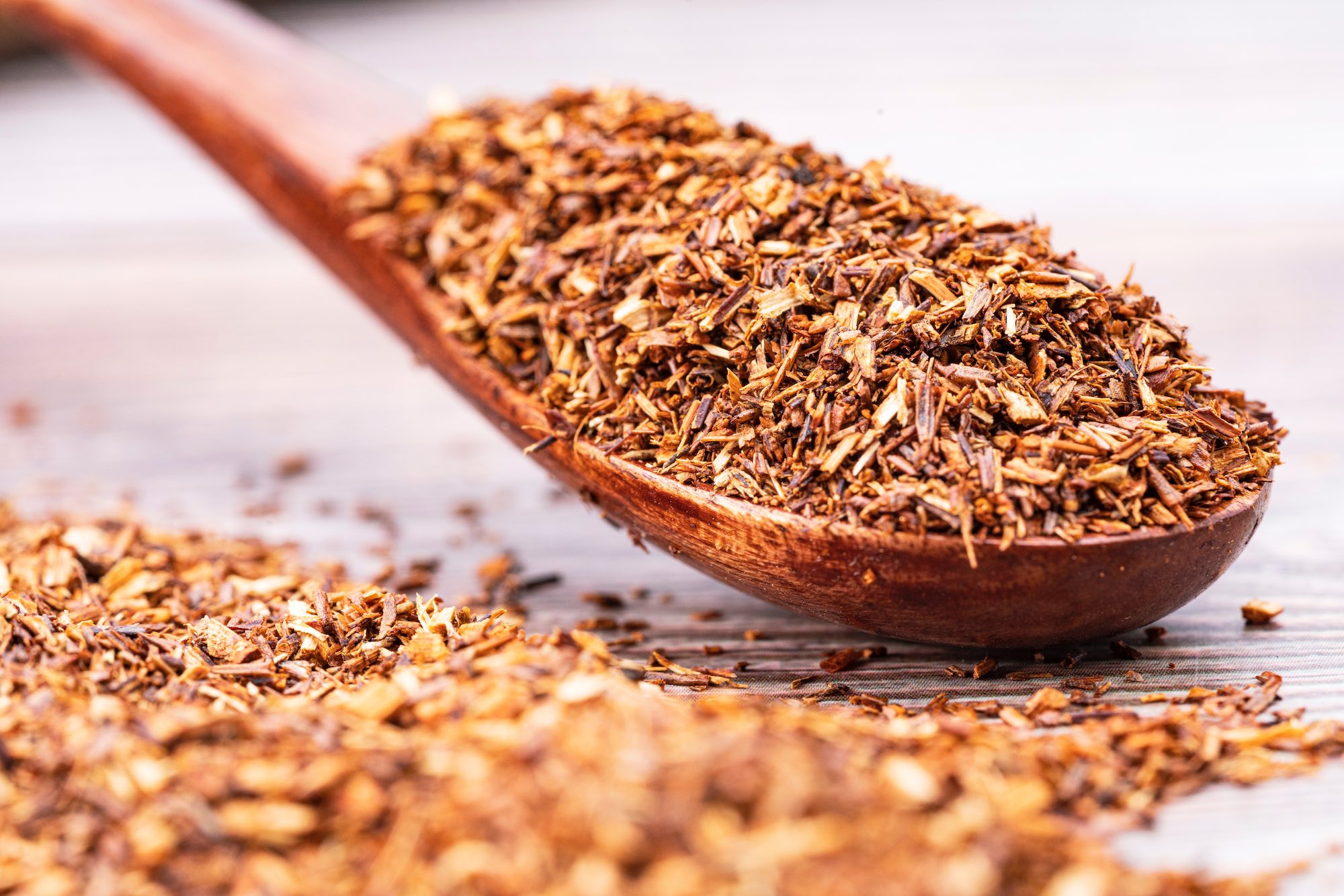There’s a lot of buzz about the plant known as Aspalathus linearis, but you might not realise it is the scientific name of the South African plant otherwise known as Rooibos or Red Bush. Surrounding a well-understood therapeutic plant with an aura of mystery by using its Latin name feels a bit like the usual woo-woo scam to us, but wait: Aspalathus linearis – that is, Rooibos or Red Bush – is amazing and here’s why.
Apart from having an amazing light, sweet taste that is easy on the palate and which you feel you can drink all day, every day, Rooibos from the Aspalathus linearis has a few secrets too.
Aspalathus linearis is rich in flavonoids, which are believed to be responsible for its reputation for health benefits. Evidence is yet to be gathered that indicates without doubt that dietary flavonoids of the kind found in Aspalathus linearis affect cancer risk in general, but observational studies and clinical trials on hormone-dependent cancers (breast and prostate) have shown benefits. For example, analysis of 14 observational studies that examined breast cancer incidence in 369,934 women found an overall 11% reduced risk of breast cancer with the highest versus lowest intake of some flavonoids.
Meanwhile, a recent review has suggested that dietary intake of flavonoids is associated with a reduced risk of different types of cancer, including gastric, breast, prostate, and colorectal cancer.
The focus of investigations into the health benefits of Rooibos or Aspalathus linearis is Aspalathin, the plant compound that may help protect against free radical damage that leads to conditions like diabetes, heart disease as well as, potentially, cancer.
You can buy Aspalathus linearis here, rather than pay the inflated prices that come with its mystified Latin name at a health food store.
The benefits of Aspalathus Linearis
With its aspalathin, if you’re looking for a naturally occurring substance that can help improve your health, Aspalathus linearis could be a good option for you. Science itself has marked Rooibos and its plant compounds as warranting further investigation. Some of the purported benefits of Aspalathus linearis include:
- Reducing inflammation
- Improving digestion
- Supporting the immune system
- Lowering blood sugar levels
There is growing scientific evidence to support these claims and more research is needed
What’s the difference between Aspalathus Linearis, Red Bush and Rooibos?
When it comes to Aspalathus linearis, Red Bush and Rooibos, they are one and the same a plant that is native to South Africa, a naturally caffeine-free, shrub-like plant grown on the Western Cape. The leaves of the Rooibos plant are cut and are either oxidized (fermented), producing what we know as Red Rooibos, or are unoxidized (not fermented), producing what we know as Green Rooibos. Green Rooibos has more aspalathin than red.
Drinking Aspalathus Linearis
If you’re looking for a delicious and healthy drink, look no further than Aspalathus linearis. native to South Africa. It has a refreshingly sweet taste and is rich in antioxidants.
The Rooibos tea that is made with Aspalathus linearis is available here at I Love Decaf and it’s available in eight different flavours:
- Aromatic Luxe Red Bush Tea
- Minty Rooibos Tea
- 2 Birds in a Red Bush Tea
- Spiced Pirate’s Rooibos Tea
- Another Mother Nutty Rooibos
- Rooibos Tea Cosy Blend
- South African Rooibos Tea
- Vanilla Flavoured Rooibos Infusion
If you are looking for a flavoursome way to kick caffeine or try more interesting tea that is as refreshing (some say more refreshing) as a cup of ‘normal’ tea, why not give one of them a try and see if you enjoy the taste of health Aspalathus linearis as much as we do.

